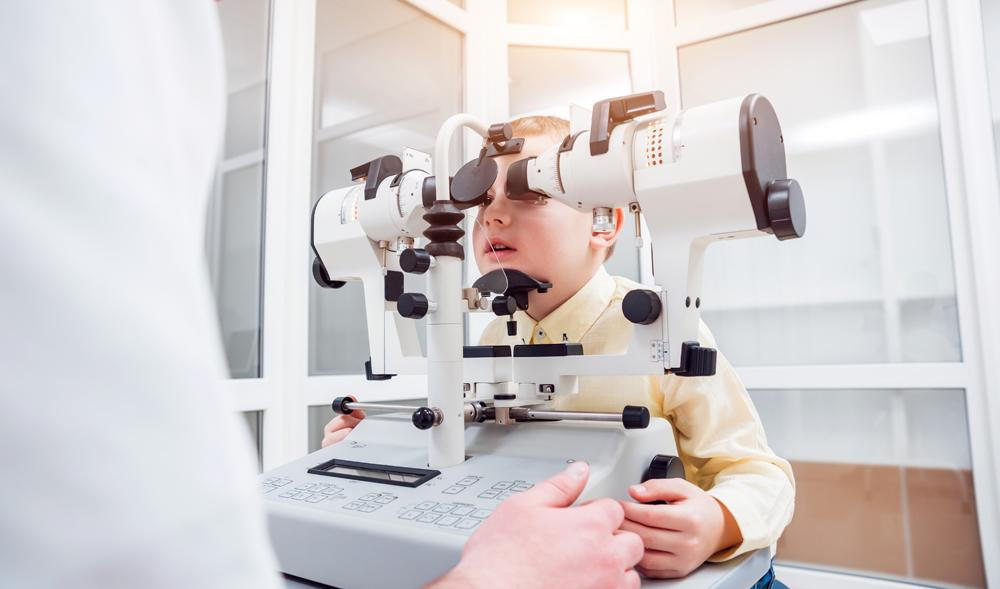Eyecare Near Me: Comprehensive and Reliable Vision Services
Wiki Article
Understanding the Numerous Eye Conditions Dealt With by Specialized Eye Care Professionals
In the realm of eye care, specialized experts play a critical function in detecting and dealing with a broad selection of eye problems. From typical refractive mistakes that affect vision clarity to age-related conditions that position difficulties as we expand older, the proficiency of these specialists reaches taking care of vision-threatening illness and detailed corneal problems. Moreover, the intricacies of neurological eye conditions present special challenges that demand specialized care. As we start this expedition of the various eye conditions addressed by specialized eye care experts, it becomes noticeable that the elaborate internet of eye health holds a myriad of interesting insights waiting to be discovered.Common Refractive Mistakes
Refractive errors are typical visual problems caused by a blemish in the eye's ability to properly focus light, resulting in blurred vision. Astigmatism is identified by an irregularly designed cornea, resulting in altered or obscured vision at all distances. Presbyopia is an age-related condition where the lens loses its flexibility, making it hard to focus on close items.These refractive mistakes can be fixed through various techniques, consisting of glasses, get in touch with lenses, or refractive surgery. Eye treatment specialists play a critical duty in identifying and taking care of refractive errors to aid people achieve more clear vision and boost their lifestyle.
Age-Related Eye Problems
One of the most prevalent age-related eye problems is age-related macular degeneration (AMD), a condition that causes central vision loss and can make tasks like analysis and driving difficult. Cataracts, one more typical problem amongst older people, trigger clouding of the eye's all-natural lens, leading to blurred vision. Regular eye tests with specialized eye treatment professionals are critical for early discovery and monitoring of these age-related eye conditions to protect vision and preserve ocular health and wellness as people grow older.Vision-Threatening Illness
Vision-threatening diseases incorporate a series of serious eye problems that have the potential to dramatically influence a person's eyesight and overall aesthetic feature. These illness posture a risk of long-term vision loss if not quickly identified and treated by specialized eye care experts. Some typical vision-threatening diseases include glaucoma, diabetic retinopathy, age-related macular degeneration (AMD), and retinal detachment.Glaucoma is a team of eye problems that damage the optic nerve, typically due to high intraocular stress, leading to peripheral vision loss and potential blindness if left unattended. AMD is a modern problem influencing the macula, leading to main vision loss.
Early detection, routine eye tests, and prompt intervention are vital in taking care of vision-threatening diseases to preserve eyesight and preserve high quality of life. Specialized eye care experts play a crucial role in diagnosing, treating, and handling these problems to prevent irreparable vision loss.

Corneal Disorders
Corneal disorders encompass a spectrum of conditions that impact the clear front part of the eye, referred to as see this website the cornea. These problems can lead to pain, aesthetic disturbances, and in extreme situations, vision loss. One common corneal disorder is keratoconus, where the cornea thins and bulges external into a cone shape, causing astigmatism and obscured vision. Corneal dystrophies, such as Fuchs' dystrophy, result in gradual vision loss because of uncommon deposits in the cornea. Corneal abrasions, frequently triggered by injury or foreign objects, can result in discomfort, redness, and sensitivity to light. In addition, infections like keratitis can irritate the cornea, possibly leading to scarring and vision problems if not immediately dealt with. Therapy for corneal problems varies depending on the specific condition yet might include medicines, call lenses, or in extreme situations, corneal transplants. Normal eye exams are crucial for early discovery and monitoring of corneal disorders to maintain vision and eye health.Neurological Eye Problems
Neurological eye conditions involve problems that look what i found impact the connection in between the eyes and the brain, affecting visual handling and total eye function. These problems can materialize in numerous ways, affecting vision, eye movements, and even the sychronisation in between the eyes. One common neurological eye condition is optic neuritis, characterized by inflammation of the optic nerve leading to vision loss, color desaturation, and discomfort with eye activity.An additional considerable problem is nystagmus, where the eyes make repetitive, uncontrolled motions, influencing visual skill read the article and depth perception. In addition, problems like amblyopia, frequently described as "careless eye," result from unusual visual advancement in very early childhood years, causing reduced vision in one eye.
Neurological eye problems require specialized treatment from specialists like neuro-ophthalmologists who have experience in both neurology and ophthalmology. Diagnosis usually involves a detailed eye exam, imaging studies, and partnership with specialists to address the underlying neurological problems influencing the visual system. Treatment strategies can include medication, vision therapy, or in extreme instances, surgical interventions to take care of these complicated problems efficiently.

Final Thought
Finally, specialized eye treatment experts treat a vast array of eye problems, including common refractive mistakes, age-related eye conditions, vision-threatening diseases, corneal problems, and neurological eye problems - refractive surgeries in al. By comprehending these various problems and seeking appropriate therapy from eye care specialists, people can preserve optimal eye wellness and vision. It is very important to prioritize normal eye evaluations and follow suggested treatment strategies to protect and protect one's vision for the futureReport this wiki page